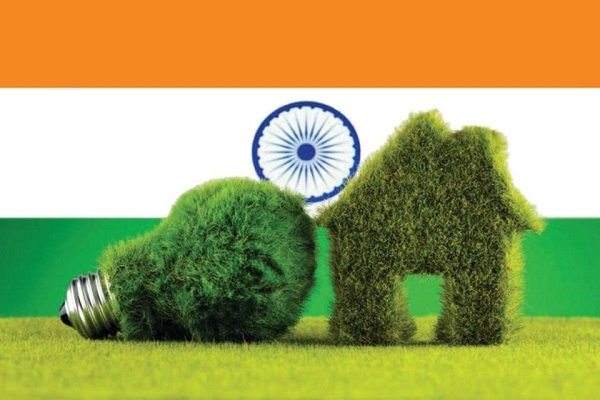Centre opts for SAKSHAM awareness regarding 'Green Energy'
Total Views |
New Delhi, Jan 18: The Union Ministry of Petroleum and Natural Gas has recently launched SAKSHAM awareness campaign, in order to spread awareness about green energy. The one-month long people centric fuel conservation campaign is to be launched by the Petroleum Conservation Research Association (PCRA). The campaign aims at highlighting the adverse health and environmental impacts of increasing carbon utility and convince consumers to switch to cleaner fuels.

The campaign is to create awareness in seven key drivers namely greater reliance on domestic sources to drive bio-fuels, moving towards gas based economy, cleaner use of fossil fuels, achieving renewable targets with the set deadlines, increased use of electric vehicles to decarbonize mobility, increased use of cleaner fuels and digital innovation across all energy systems.
The campaign will be promoting it's objective through various activities of cyclothon, farmer workshops, seminars, painting competitions, CNG vehicle driving contests, etc are held across India to spread awareness among the masses about the advantages of using clean fuels. In addition to the SAKSHAM campaign, the Centre is already running various schemes in order to promote the utility of green energy.
Shri Tarun Kapoor, Secretary, MoPNG in presence of senior officials of the Ministry, inaugurated @pcraindia 's annual fuel conservation drive #Saksham2021.
— Ministry of Petroleum and Natural Gas #MoPNG (@PetroleumMin) January 16, 2021
Shri Kapoor also administered the Fuel Conservation 2021 pledge to participants.https://t.co/zm9jBwz7Tk pic.twitter.com/8EcAR6n1jf
The PM-KUSUM scheme covers grid connected renewable energy power plants, grid connected agriculture pumps and solar water pumps. The scheme aims to install 10,000 MW of decentralised grid connected renewable energy power plants. It will install standalone off grid solar water pumps to fulfil irrigation needs. Also, it will solarise the existing grid-connected agriculture pumps. With this the farmers can sell the surplus solar power generated to the Discoms.
The Grid Connected Roof top Solar Programme aims to achieve a cumulative capacity of 40,000 MW of Rooftop solar power projects by 2022. In a grid connected rooftop solar power project, DC power generated is converted into AC power using power conditioning unit and is then fed into the grid. The main objective of the solar programme is to promote solar power generating plants among the residential, institutional and community establishments.
The National Wind-Solar Hybrid Policy mainly aims to provide a framework to promote large grid connected wind-solar hybrid system. It also aims to encourage new technology and way-outs involving combined operation of solar and wind power plants. The National Offshore Wind Energy Policy, notified in 2015, aims to develop offshore wind energy in the Indian Exclusive Economic Zone. The policy has identified eight zones that have cumulative offshore wind energy potential of 70 GW.

